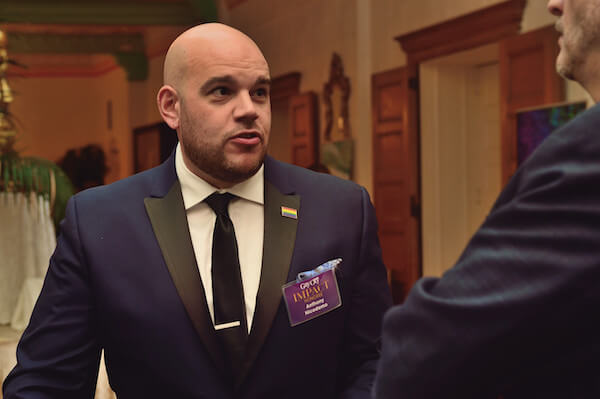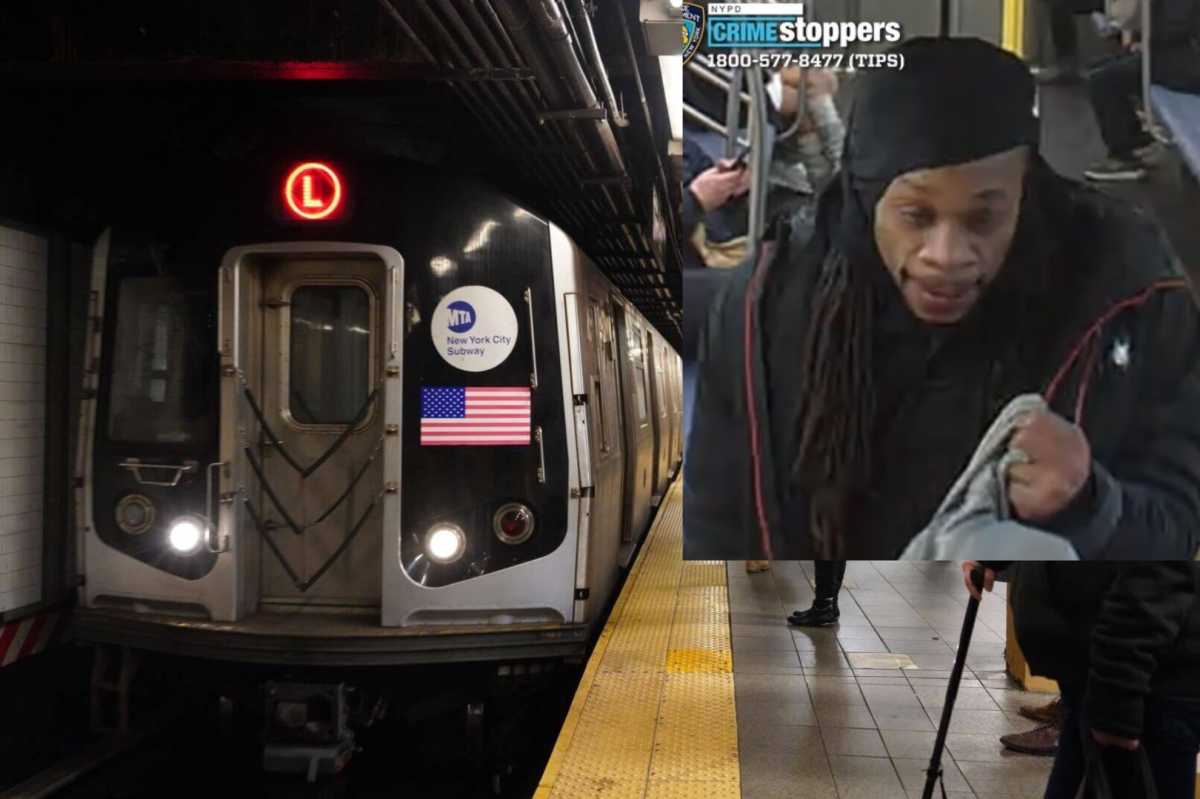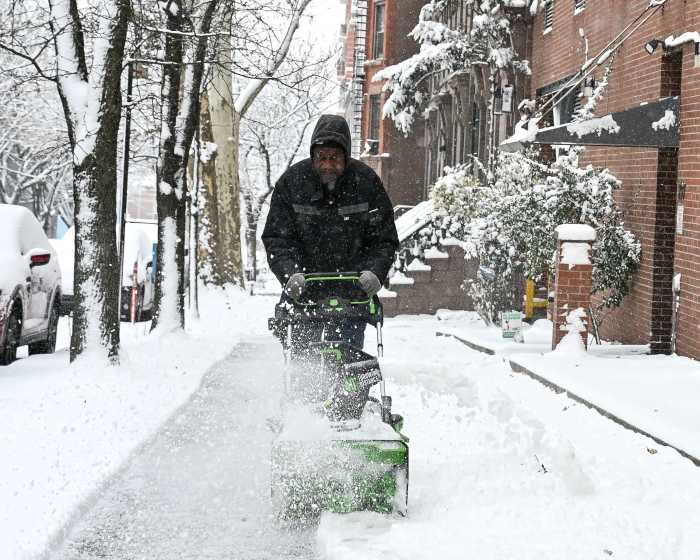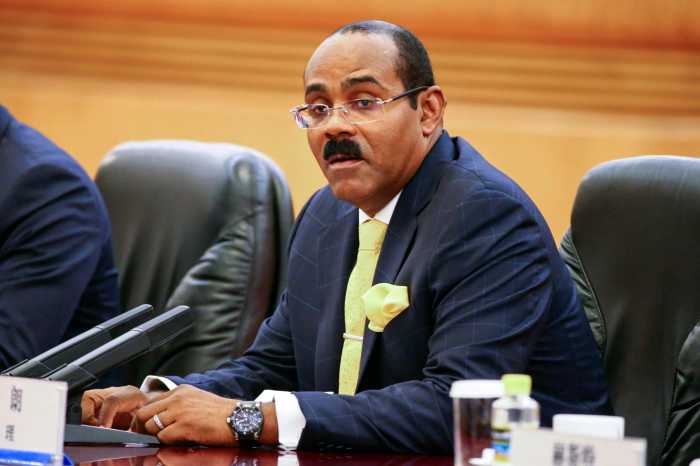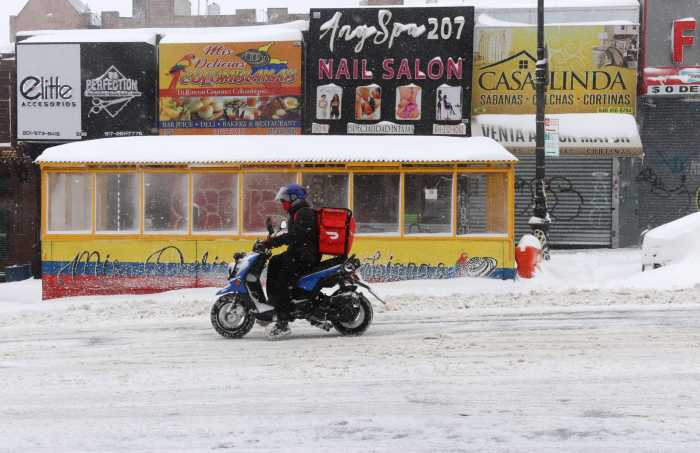The state adopted the harshest penalties in the nation for drunk drivers who operate vehicles with children in the car thanks to pressure from a group of hardy local advocates spurred to action following a tragic crash that took the life of a young Chelsea resident.
“Leandra’s Law,” the legislation named in memory of 11-year-old Leandra Rosado, the Fulton Houses resident who was killed in a drunk-driving incident on the Henry Hudson Parkway last month, was signed into law by Governor David A. Paterson on Wed., Nov. 18.
“She’s probably up there yelling and jumping and saying, ‘Yeah Dad! That’s my dad, that’s my dad. He’s my hero,” said Leandra’s father, Lenny Rosado, only hours after the law went into effect.
A day earlier, the measure received a ringing endorsement from Assembly Speaker Sheldon Silver at press conference in Albany, due in part to Lenny’s tireless advocacy for the legislation after Leandra’s Oct. 11 death.
Silver, who had weathered criticisms over the past couple weeks for remaining unmoved on the issue, delivered the news that the Assembly would join the state Senate in fully supporting a law making it a felony to drive with a blood-alcohol level above the legal limit of 0.08 with minors in the car. The legislation also requires the installation of ignition interlocks in vehicles for anyone convicted of drunk driving.
“My heart and the hearts of this conference go out to Lenny Rosado, to Leandra’s family, and to every parent that has lost a child or has seen their child injured because of drunken driving,” Silver said at the press conference, with Rosado standing next to him.
“Today I consider this a victorious day and a glorious day—not only for me and my family and for my daughter, but for all New Yorkers,” Rosado said at the press conference, adding, “it’s going to save many children’s lives.”
Leandra Rosado was killed when a car driven by Carmen Huertas, 31, lost control and flipped multiple times on the Henry Hudson Parkway on its way from Chelsea to the Bronx. Huertas had been drinking at a party in Chelsea earlier that evening before loading eight children into the car, including two of her own kids, to go to her apartment for a slumber party. Huertas and six of the passengers, all girls aged 11 to 14, escaped the wreck with non-life-threatening injuries. The driver’s blood-alcohol level was one-and-a-half times the legal limit at the time of the crash, and she has since been charged with multiple counts of manslaughter and vehicular manslaughter, as well as assault and DUI.
The Assembly had previously expressed support for a more lenient bill that would have made it felony only if the driver had a blood-alcohol level of 0.18, which is more than twice the legal limit.
In response, Rosado, along with a dozen or so neighbors from the Fulton Houses and members of the nonprofit Fulton Youth of the Future, protested outside Silver’s Downtown office on Fri., Nov. 13, waving homemade signs and encouraging passers-by to sign a petition in support of Leandra’s Law.
“Lives are being taken!” Rosado boomed during the demonstration, which also featured representatives from Mothers Against Drunk Driving (MADD), which had been lobbying hard for the law.
After failing to arrange a meeting with Silver that day, Rosado pledged to “keep fighting and fighting until I’m heard, until we get what we want.”
Apparently that chorus of voices—which included about 6,000 signatures on a petition created in support of the measure—was heard loud and clear.
“Last night I went to bed thinking about this man, and I couldn’t sleep all night because I was crying for him,” said Long Island Assemblymember Harvey Weisenberg, who sponsored the bill. “I’m sorry it took so long, but the success is the fact that we’re doing a bill that is going to be acknowledged as the toughest in the country.” Weisenberg also credited Silver for allowing the Assembly to fully debate the issue without caving to pressure to fast-track the measure.
“This is I think a terrific tribute to Leandra Rosado, and we are proud to stand with you today to celebrate her life,” said Charles Hurley, CEO of MADD.
Kate Hogan, president of the state District Attorneys Association, pointed out that drunk-driving accidents dropped by 35 percent in states that have mandated ignition interlocks, which force drivers to blow into a device that tests for alcohol consumption before they can drive.
“I particularly salute Lenny, who inspired so many New Yorkers to reach out to their representatives and have their voices heard,” Hogan said, adding that the new law “isn’t just preaching—it’s the real deal.”
Miguel Acevedo, Rosado’s neighbor and the director of Fulton Youth of the Future, also pledged to push the law in Washington to create national legislation.
For Leandra’s father, the victory provides only a measure of relief as he continues to cope with the loss of his daughter.
“I wish I still would have my daughter standing by my side,” he said. “I wanted to turn this into a positive thing to make sure that no parent suffers through what I suffered through.”

